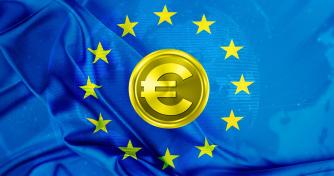The European Union – Crypto’s Trojan Horse
Photo by Hrohmann on Pixabay
Recently there has been extensive coverage about Malta’s attempt to become the leading country in the crypto sphere. Three new bills passed through Malta’s legislature this week, indicating they are on their way to becoming law.

These three new bills essentially transform Malta into the ‘world leader’ of ICO and crypto activities.
The Bills are The Virtual Financial Assets Act (VFA), The Malta Digital Innovation Authority Act, and The Technology Arrangements and Services Bill. Each of these Acts achieves a different legislature point designed to give clarity, framework, and guidance to those looking to work in the crypto world.
This news about the new Bills brings mixed feelings of good and bad news within the crypto world. Many believe that this is the long-awaited news that the crypto world has been waiting for. However, the concept of regulating ICOs is really, nothing new.
Regulating ICOs

Gibraltar passed legislation around the issuing of new tokens through an ICO some months ago. Granted, this legislation was not as encompassing compared to what Malta is looking to pass and does not cover exchanges. However, the point is that other jurisdictions have already tried to pass legislation to make ICOs more attractive.
Zug, Hong Kong, and other jurisdictions also made steps to pass laws to push certainty around cryptocurrencies.
While the mixed feelings around Malta’s current moves come from the community sentiment of ‘centralized vs. decentralized’ and the question of legislation detracts or supports the inherently decentralized nature of cryptocurrencies, there is a second seriously overlooked element to the actions of our new found ‘Crypto Island’.

For those who have studied law within Europe, we are all too aware of one crucial party to the whole operation which seems to have been massively overlooked. The European Union.
When member states join the European Union the sign that they will ratify into existence any laws which are passed to cover areas concerned with EU jurisdiction. This power is granted under articles 3 and 13 of the Treaty of the European Union. For the most part, this includes a significant amount of financial rules both under the EU generally, and under the European Central Bank.
There are some countries which hold an exemption to this for certain areas such as agriculture etc. However, it is understood that compliance with the European Central Bank is paramount, especially for those countries which issue and use the Euro as their currency.
Controlling Monetary Policy
The whole concept of this is so that the European Union can control monetary policy amount the Member States that use the official currency of the Union. They have, ultimate say over whatever happens to member states in a monetary sense, although some member states do retain some powers. We saw the biggest flex of these powers during the financial crisis when a number of Member States including Greece were bailed out from their financial situation.
The Central Bank of Malta has a massive capital subscription paid up with the European Central Bank, making it a fully fledged member of the European Monetary Community. The same is true of Estonia and Liechtenstein.

Naturally, it is not a far stretch of the imagination to think that the ECB will step in and set a monetary policy around cryptocurrencies within the European Union. Because, much like with America, the Member States can only have one currency in circulation (The Euro).
If countries begin adopting cryptocurrencies or issuing their own, it would be in direct breach of European Monetary Policy. If this happens, the whole framework around cryptocurrencies in each one of these member states could be drastically changed. Very quickly.
We have recently seen an example of this with the EU introducing new laws around Know Your Customer (KYC) and Anti-Money Laundering (AML) rules which have a precise impact on companies undertaking an ICO. Twinning that with how much we saw the GDPR having a global impact, you begin to see the true strength of the European Union over its member states.
Jurisdictional Risks
It is for this reason why, countries such as Liechtenstein, Estonia, and Malta are all, currently, still a risk jurisdiction for basing cryptocurrency operations. True, much like with any dual legislature framework anyone would be relying on the domestic law.
However, the European Treaty will not let member states create a law which is in direct conflict with an Act of the European Parliament as long as the EU has jurisdictional rights to make such a law. In matters of finance, the EU has such rights.
It is appreciated that the chances of this happening are slim, however as public opinion changes around cryptocurrencies and ICOs it is likely that the ECB will have no choice but to take a firm position on cryptocurrencies. In doing so, it will look at all the opinions of the member states and views on what, how, and when cryptos are used.
At the moment, a majority of those member states, including much larger ones are cracking down on ICOs and crypto operations in an attempt to stamp them out of circulation. Which means at the moment, countries like Germany, Poland, and even to an extent France, have a much bigger say in the EU monetary policy.
In the meantime, while the laws in Malta and those already passed in Estonia and other countries for crypto operations are great news. They are coming out of the smaller Member states in a legislative body which recognizes proportional representation. Essentially, the bigger countries receive the bigger voting power.
With the cloud of the EU leaning over its member states the question has to be asked, is the work being done by EU member states nothing more than a Trojan horse for those in the crypto world?



 Farside Investors
Farside Investors 


 CoinGlass
CoinGlass 























































































